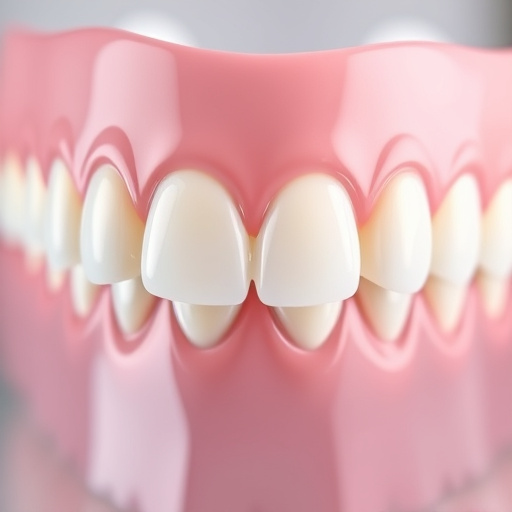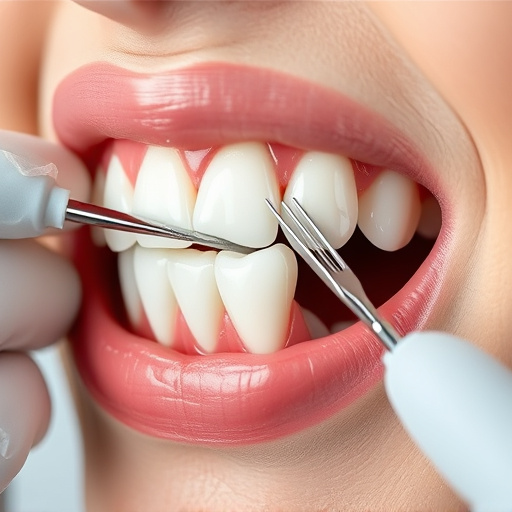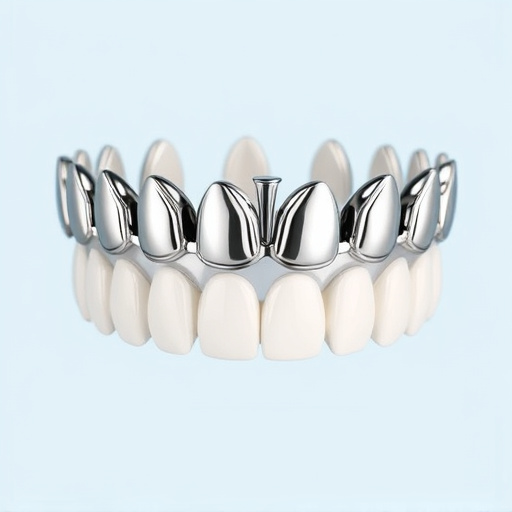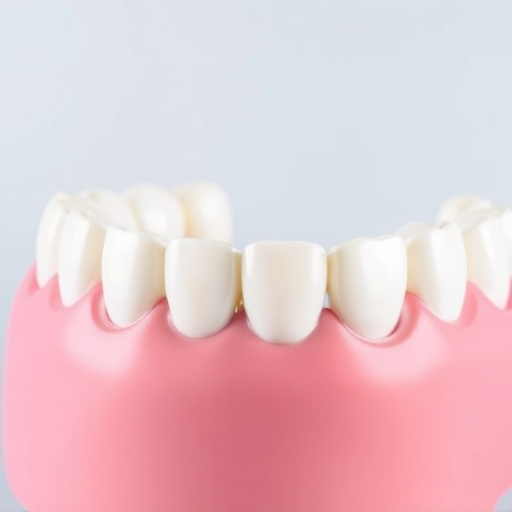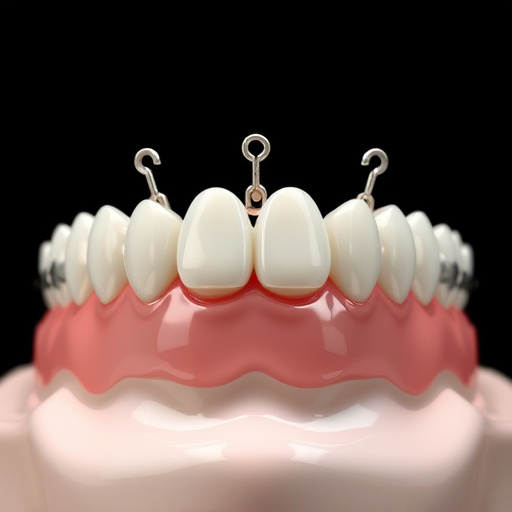Congenital mouth defects, forming during foetal development, impact teeth, gums, and jawbones. Oral surgery, from dental crowns to clear aligners, corrects these anomalies, with preventive dentistry managing mild cases. Advanced techniques and early intervention enhance smile aesthetics, oral health, and functionality for all ages. Recovery involves medication, aftercare instructions, balanced nutrition, and regular follow-ups for optimal results, emphasizing the crucial role of oral surgery procedures in addressing complex congenital conditions.
Oral surgery plays a crucial role in correcting congenital defects, addressing issues present at birth that affect the mouth and surrounding structures. This article delves into understanding these rare yet significant defects and explores various oral surgery procedures designed for their correction. From extractions to complex reconstruction, we examine common techniques used by oral surgeons. Additionally, we provide insights into recovery and aftercare considerations, guiding patients through the process of healing and restoration.
- Understanding Congenital Defects in the Mouth
- Common Oral Surgery Procedures for Correction
- Recovery and Aftercare Considerations
Understanding Congenital Defects in the Mouth
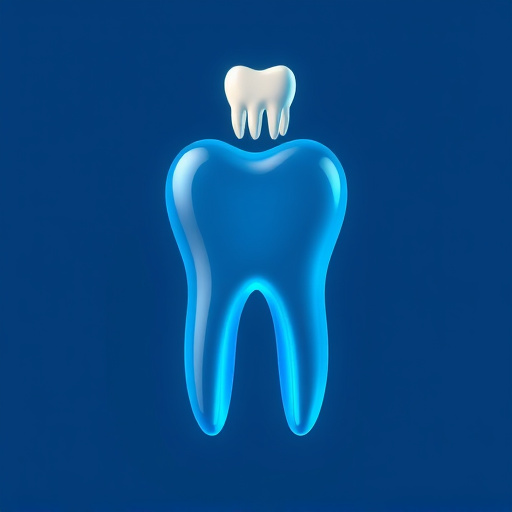
Congenital defects in the mouth are conditions that develop during foetal growth and present at birth, affecting various structures like teeth, gums, jawbones, and soft tissues within the oral cavity. These defects can range from minor issues like missing or misaligned teeth to more complex problems impacting overall oral health and functionality. Understanding these defects is crucial for effective management and treatment planning in oral surgery procedures.
Oral surgery plays a pivotal role in correcting congenital defects, offering both restorative and aesthetic solutions. While preventive dentistry and clear aligners can mitigate some minor issues, more severe congenital anomalies often require surgical intervention. For example, dental fillings might address early decay related to these defects, but complex bone or tissue irregularities may demand advanced oral surgical procedures for optimal correction and long-term oral health.
Common Oral Surgery Procedures for Correction

Common Oral Surgery Procedures for Correction
Oral surgery procedures play a significant role in correcting congenital defects that affect the mouth and jaw. These defects can range from misaligned teeth to complex skeletal anomalies, impacting both functionality and aesthetics. One of the most common procedures involves dental crowns, which are used to restore damaged or weak teeth, providing strength and improving their appearance. For milder cases, clear aligners offer an alternative solution by gently realigning teeth over time without metal braces.
In addition to these, routine oral exams are crucial in early detection and diagnosis of congenital defects. Early intervention allows for more precise and effective treatment plans. Oral surgeons use advanced techniques and technology to navigate complex structures within the mouth, ensuring successful outcomes. These procedures not only enhance smile aesthetics but also improve overall oral health and functionality for patients of all ages.
Recovery and Aftercare Considerations
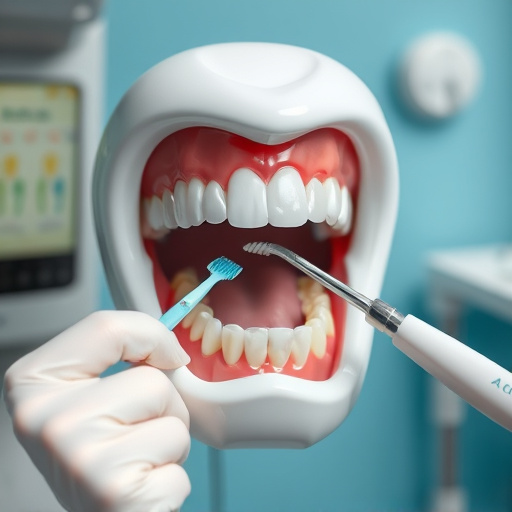
Recovery from oral surgery procedures varies depending on the complexity of the congenital defect being corrected. Patients can expect some discomfort and swelling in the initial days following surgery, which is typically managed with prescribed medications. It’s crucial to adhere to aftercare instructions provided by the dentist or surgeon, including proper hygiene practices, dietary recommendations, and restrictions on strenuous activities.
Proper healing necessitates a balanced diet rich in nutrients to support tissue repair. Soft foods may be recommended initially, transitioning to solid foods as comfort levels permit. Avoiding certain foods and beverages, such as hot or acidic substances, is essential to prevent irritation and promote wound healing. Regular follow-up appointments are vital to monitor the healing process, ensure optimal results, and address any concerns or complications that may arise post-surgery, including potential issues with dental fillings or tooth extractions. Additionally, maintaining good oral hygiene practices, as advised by your dental care team, is crucial for a successful recovery in cosmetic dentistry procedures aimed at rectifying congenital defects.
Oral surgery procedures play a pivotal role in correcting congenital defects, offering permanent solutions for conditions that often require multiple treatments. By leveraging advanced techniques, skilled surgeons can navigate complex oral anatomies and create aesthetically pleasing, functional results. From understanding the specific defect to post-operative care, each step is crucial in ensuring patients achieve long-lasting satisfaction with their oral health and appearance.


